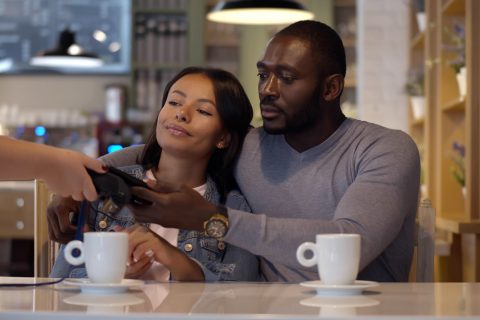As many young people turn to TikTok for their news, what does that mean for democracy? Christian Paz, senior politics reporter at Vox, joins host Krys Boyd to discuss the social media platform’s influence on voting habits, how stylized and highly emotional political videos grab attention, and how users end up in an echo chamber that doesn’t challenge their views. His article is “Is TikTok breaking young voters’ brains?”
TikTok users aren’t as informed as they think
By Sophia Anderson, Think Intern
Watching TikToks might give young adults an inflated sense of political and social awareness. Vox reporter Christian Paz spoke with Krys Boyd about how the app influences young adults, especially when it comes to politics.
What viewers may perceive as getting “news” from TikTok is actually watching commentary or man on the street videos about current events. Due to TikTok’s hyper-specific algorithm, viewers are likely watching people with very similar viewpoints to themselves.
“Democracy and politics really work when you are exposed to as many opinions as you can understand,” Paz said.
TikTok essentially does the opposite. It quickly determines a user’s opinion and feeds it back to that user for as long as they want to scroll. The way the algorithm works isn’t news at this point, but the potentially concerning element is how little users are aware of the truly concentrated nature of the content they consume. Paz aptly describes TikTok as “an amalgam of a lot of disparate communities that are hard to break into and break out of.”
Though platforms like the New York Times, the BBC and NPR have TikTok accounts, Paz says that young users rarely seek out these sources. Listening to content creators who look or sound like them is more palatable for obvious reasons. There might even be the sense – whether conscious or unconscious – that getting information from outside mainstream news sources is fresher, more reliable or more accurate.
TikTok is the perfect places for conservative voices to echo former president Donald Trump’s insistence that the “mainstream media” is corrupt. Once the algorithm determines that someone holds this viewpoint, it will feed them people who agree, and the solution: more alternative news content.
But the average TikTok user, and the average American, might not understand the qualifications that separate professional journalists from TikTokers doing man on the street interviews. Ideally, journalists are trained to interview a diverse array of people, ask neutral questions that allow for honest responses and triple check all their facts with the help of editors. Any reputable newsroom will have a code of ethics, which normally resembles the universal Society of Professional Journalists code of ethics.
Additionally, the political content on TikTok doesn’t usually aim to be rational or impartial. The most reliable way to get views is through appeals to emotion or even humor. TikToks are undeniably engaging, and watching commentary on current events instead of reading the original news stories may give viewers the illusion of a personal connection to the topic. But without an understanding of how “news” on TikTok functions, users overestimate the quality of information they’re consuming.





